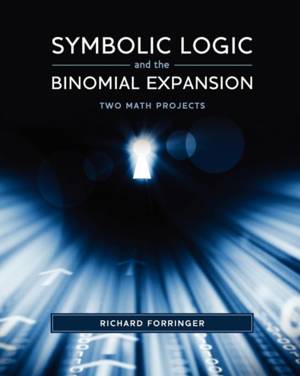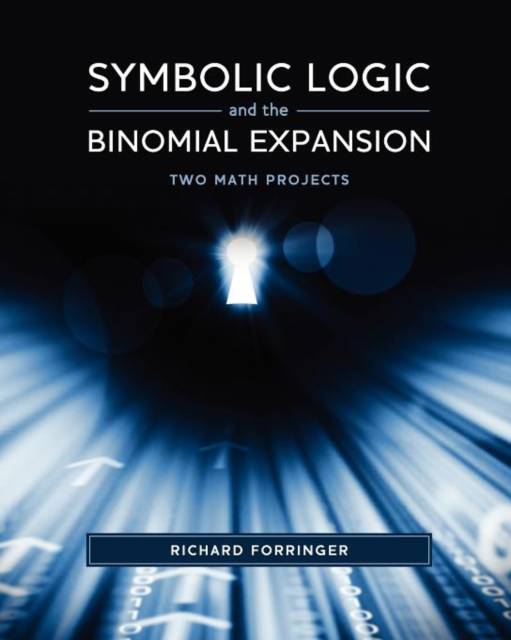
- Afhalen na 1 uur in een winkel met voorraad
- Gratis thuislevering in België vanaf € 30
- Ruim aanbod met 7 miljoen producten
- Afhalen na 1 uur in een winkel met voorraad
- Gratis thuislevering in België vanaf € 30
- Ruim aanbod met 7 miljoen producten
Zoeken
€ 22,45
+ 44 punten
Omschrijving
While Symbolic Logic and the Binomial Expansion are subjects that are often mentioned in High School and College math courses, the two projects contained in this book have been carefully developed to help the student achieve a more in-depth understanding of these concepts. The projects are designed to be done independently or they can be incorporated into the curriculum of any math course from second semester algebra and beyond. Students who complete these projects will gain a stronger appreciation of what it means to think logically and they will see how two seemingly unrelated areas of study connect in ways that strengthen both. Areas of focus in these projects include: Truth Tables Compound Truth Tables Negations Conditionals Converse, Inverse, and Contrapositive Biconditionals Tautologies Symbolic logic (also known as Mathematical Logic) is foundational to many fields of study such as computer science and engineering. Those who have an understanding of symbolic logic and the binomial expansion will be better prepared for further courses of study in mathematics, science, and engineering. About the author: Dick Forringer received his Bachelors Degree from Kent State University, majoring in mathematics and he earned his Masters in Education from Fordham University. He retired after 42 years of being a teacher and administrator at Durham Academy, in Durham, North Carolina. He is a recipient of the F. Robertson Hershey Distinguished Faculty award and the Brumley Excellence in Teaching award. Dick has also had three feature articles published in Mathematics Teacher. This is his second published book.
Specificaties
Betrokkenen
- Auteur(s):
- Uitgeverij:
Inhoud
- Aantal bladzijden:
- 122
- Taal:
- Engels
Eigenschappen
- Productcode (EAN):
- 9781935991373
- Verschijningsdatum:
- 21/11/2011
- Uitvoering:
- Paperback
- Formaat:
- Trade paperback (VS)
- Afmetingen:
- 203 mm x 254 mm
- Gewicht:
- 258 g

Alleen bij Standaard Boekhandel
+ 44 punten op je klantenkaart van Standaard Boekhandel
Beoordelingen
We publiceren alleen reviews die voldoen aan de voorwaarden voor reviews. Bekijk onze voorwaarden voor reviews.











